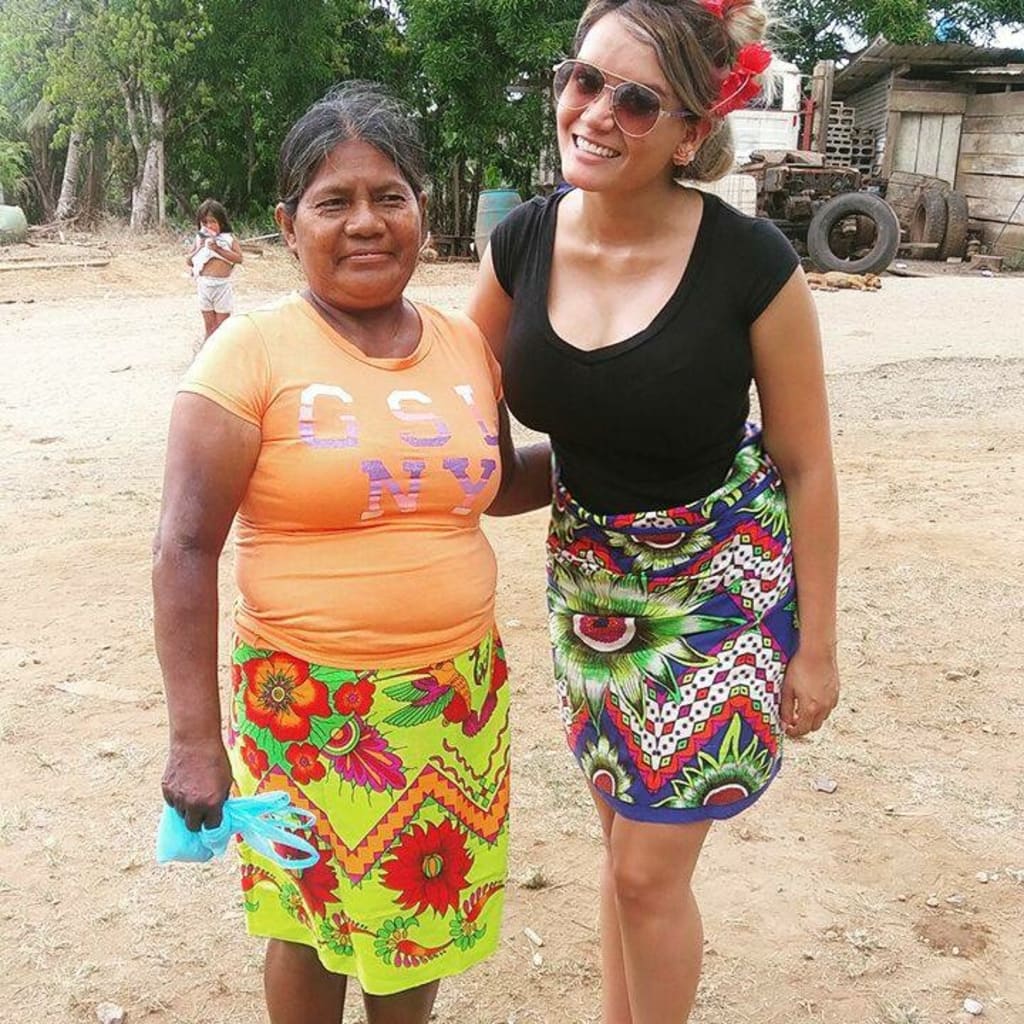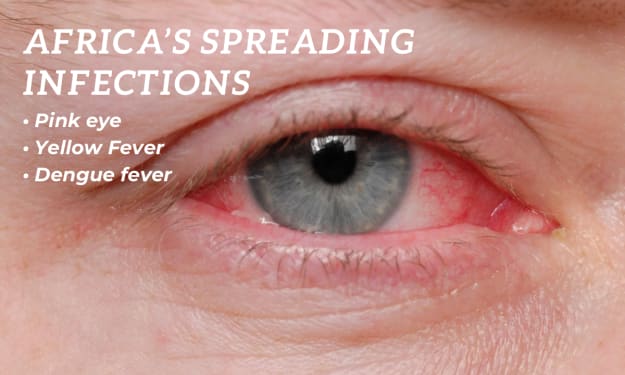Small Experiences Teach Life Changing Lessons
An Article About How My Faith in Human Race Was Restored

Imagine for a second that you were raised in a country that claims itself as “Center of the world, heart of the universe.” You’d think that cultural understanding is common, wouldn’t you? Well, I was, yet that concept seems utopic to me because every day I get the unpleasant chance to read xenophobic comments of people who grew up next to me. People who, thanks to social media, see the foreigners as threats in their country. And I realize that it not only happens in the small piece of land where I grew up; it happens all over the world every single day.
Panama has less than four million habitants. Our geographic location is our major advantage because it brings a lot of commercial activity into the country that helps economic development and gives us global recognition. Through history, Panama has received different waves of immigrants—some of them came by choice, others were forced to come and work as slaves—but thanks to those immigration waves there are a lot of ethnicities and we’ve become a very mixed population.
The unfair wealth distribution pushed away an important group of our country who definitely deserves more recognition and attention because they keep alive the essence of Panamanian culture and original customs. Before globalization existed, the indigenous were already here. It’s almost unbelievable to me how in such a small country where I’ve lived for almost 18 years, I never learned almost anything about their culture and traditions in my own country. This made me realize that we don’t have a cultural understanding policy even in a country so small.
Because I speak two languages (thanks to my mom's insistence on me learning English, thank you, mom) I was lucky enough to get involved in a nonprofit organization that, based on cultural exchange, works with indigenous communities in three different countries of Central America and helps them improve their lifestyles by offering a holistic model that teaches them how to become self-sustainable communities. I was supposed to go only as a translator, but this experience ended up completely changing my life. I got the chance to meet amazing people from different parts of the world, with completely different life stories, but with the characteristics that I needed to see in a person to restore my faith in human race. And the reason why I mention this is because, on one of these trips I went on, I was able to meet a woman whose story is so touching and inspiring, that it deserves to be told.
Last year we were all witnesses to tragedies all over the world, and this time I want to talk about one in particular: Middle East war. This event forced thousands of people to leave the country where they were born. Around four hundred of them arrived in Panama, my small (yet beautiful) country; when they got here after facing life-threatening experiences, they weren’t welcome. The border patrol tried to stop them from entering the country because none of them had the right documents. Most of them had serious injuries and they weren’t even able to communicate properly because they didn’t know Spanish. Physical force and violence were used to avoid their entrance. But this woman I mentioned before—a humble indigenous lady, who earned my respect the second I met her because of her character and her strength—decided to look beyond the nationality and broke the cultural barrier. She realized they were human beings in a difficult situation and she confronted the border patrol and anyone who stood in her way to provide them food and shelter because she realized they were not “undesired immigrants” as everyone called them; they were people, just like her children, her friends, and her neighbors. Being a natural leader, she managed to organize the whole village, which is located in one of the poorest areas in Panama, and they shared their land and resources with their guests for almost three months. That proves that cultural barriers can be broken, and even when you don’t speak the same language, you can develop a connection with someone else if you really try. This community has its own dialect, none of them speak English and few of the immigrants spoke Spanish, but they were able to cohabit the same territory and share the resources that they had to survive. How greathearted and altruistic do you have to be to share what you don’t even have? Because this community doesn’t have basic needs like potable water or a strong roof. But that didn’t stop them from welcoming four hundred guests from different parts of the world.
When I heard this story, my eyes were filled with tears because I realized that these are the kind of actions we need to imitate.
During this experience, I not only had the privilege to work with the Embera Indigenous community, I was also able to share my time and work with students from Holland, USA, Peru, Guyana (and the list goes on) and I realized that there are caring young leaders all over the world. We don’t come from the same country and we have different customs but we all have something in common and that is thatwe care about the future of the world we’re living in. We all believe that small actions matter because we might not change the world but if we are able to help one person, or even better one community, that makes a difference. It changes someone’s life. And this is mutual. Because the people who we were supposed to help, ended up teaching us (at least me) life-changing lessons. Getting the opportunity to meet this woman was a wakeup call to me and reminded me of my role as a young adult in today’s society. And if I’m able to share that story, in English or Spanish (which is my first language), I will do it every chance I get. I made friendships with people who share the same passion as me and that definitely gives me hope.
I truly believe tolerance is something that we need to learn since we’re infants: acceptance and diversity should replace fear and hate in every education model. I agree that countries need to have immigration regulations because the ugly truth is that we don’t live in a fantasy world where everyone has good intentions. The need of policies that contribute to keeping the security of a country is real, but those regulations should be based on a global agreement on what’s “right” or “wrong” (and by right or wrong, I mean socially acceptable). But the citizenship or the entrance to a country should never be denied to someone because of racial or cultural reasons. We need to respect different cultures, and what should be considered as “right” actions must always respect human rights (which must be universal).
As a Psychology major student, the biggest lesson that I’ve learned is the importance of seeing everyone as a human being without social or racial prejudices. The main ethical principle of my career is to care about the wellness of a person and I believe that is my responsibility as a member of the millennial generation to share this message because complaining about the subject won’t make any changes. I’ve always been told “If you’re not part of the solution, then you’re part of the problem” and we can’t remain distant to the situations that surround us just because they don’t affect us directly. By including multilingual education programs, we provide younger generations the opportunity that I was given. Learning a language is always a strength in today’s competitive world, but that has to be taught along with moral values that make multilingual ability a weapon against different global problems such as intolerance and discrimination. As Nelson Mandela once said, “Education is the most powerful weapon you can use to change the world” and I couldn’t agree more, but for me, it’s important to always keep in mind that education is not only the academic lessons we learn in a classroom (which are important). Education has to include all fields of human activity, including the development of personal, psychological, and social skills, as well as moral values.
About the Creator
Montse Miranda
Psychologist. Passionate about traveling, fighting for human rights & good beer.
I love discussing about philosophical (and controversial) topics
Born in Mexico, raised in PTY, living in📍NYC






Comments
There are no comments for this story
Be the first to respond and start the conversation.